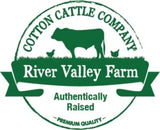Frequently Asked Regenerative Agriculture Questions and Answers
We get it, it can be overwhelming at times, even daunting, to keep track of the local, ethical food system, all the practices, certifications and movements. The funny thing is, a lot of times these movements are nothing new, they were just given a new name or shined on in a new way that illuminated them enough to start a movement or enter mainstream media.
This can be good and bad. On one hand, word is spreading. On the other hand, these movements seem to shift so regularly, and word spreads so quickly and widely, that the constant onslaught of “new things” naturally causes consumers to put a wall up. We become skeptic and we question credibility. Take regenerative agriculture for example. The concept and, more importantly, the science backing it is nothing new.
And still, we get it. The overwhelm is real. However, we must dig deeper when there is new or unknown. Here’s our attempt to grab a shovel and help you dig. We hope you read on with an open mind and with greater understanding of what regenerative agriculture is all about.
What is regenerative agriculture?
California State University, Chico and The Carbon Underground recognize regenerative agriculture as a holistic land management practice that leverages the power of photosynthesis in plants to close the carbon cycle, and build soil health, crop resilience and nutrient density.
What are some of the methods used by farmers practicing regenerative agriculture?
We like this roundup from NSF International’s own FAQ document:
- Maximize ground cover through the use of cover crops, mulch, and intercropping.
- Minimize soil disturbance through conservation tillage and rotational grazing.
- Increase on-farm diversity through crop rotations and incorporating livestock.
- Reduce the use of external inputs such as fertilizers or pesticides.
- Promote whole-farm health by viewing the land as an ecosystem and working with instead of against nature.
If you would like to learn more about any of these and/or how Cotton Cattle operates, let us know: orders@cottoncattlecompany.com.
If it works, why don’t all farmers do it?
Simply put, and without getting too into the thick of society and politics, since we’ve strayed so far from original, healthy, naturally organic land in many parts of the country, it’s easier and more cost effective IN THE SHORT TERM for farmers to go against the natural way of the land. Once farmers realized they could intervene to speed things up and produce more in their lifetime, the end game, a crippled environment and broken food system, didn’t matter.
So is it actually plausible for farmers to operate a profitable business using regenerative methods?
In short, yes. The issue for a lot of farmers is more often patience than lack of profits. We think this quote from a Soils for Life Case Study sums it up nicely:
“Yes! Low input agriculture is profitable if the land owner manages for a healthy regenerative farm that functions as an ecosystem. This is achieved with a large diversity of over 50 species of perennial and annual plants so that the pastures function like grassland. When a farm is managed as a grassland soil health improves. Soil structure improves, micro organisms increase in numbers and diversity, organic carbon increases and nutrients begin to cycle. This increases water holding capacity, reduces or eliminates the need for fertiliser, fungicides and insecticides. The farm can be very productive without expensive inputs.”
What about sustainability? Wasn’t that a thing for a while?
Yes. And it’s not gone. And it’s not bad. However, regenerative agriculture aims to renew the productivity and growth potential of the land. Sustainability aims to stay the same. While this is an admirable effort that still opposes the use of harmful land treatment, it does so in a way that still takes extra energy and effort, and therefore depletes natural resources, in dynamic natural systems.
There are far more questions to address, we know this, but this is definitely a great start and our door is always open if you would like to come knocking with more questions. Beyond advocating for regenerative agriculture through daily practices and methods at Cotton Cattle, we must commit to education and sharing knowledge, too. Now for your part.
Commit to and/or continue to buy from places where you can ask these questions and receive honest answers.
Thank you as always! Your support - whatever form it comes in - of our small, ethical business never goes unappreciated.



Leave a comment